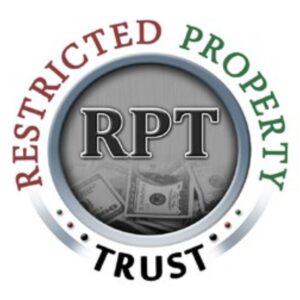Mastering Asset Protection: The Role of Restricted Property Trusts in Wealth Management
Mastering Asset Protection: The Role of Restricted Property Trusts in Wealth Management
Blog Article

In a constantly changing financial environment the need to safeguard your assets has become more critical than ever. Restricted Property Trusts (RPTs) provide a method to ensure your financial security by providing a solid mechanism to protect valuable assets from potential risks and risks. Restricted Property Trust function and the reasons why they're a valuable instrument for asset protection.
What Are Restricted Property Trusts?
A Restricted Property Trust is a special financial instrument designed to safeguard and manage valuable assets, with certain limitations on their use and transfer. In contrast to traditional trusts, RPTs impose certain limitations on the way assets are accessed or distributed, which provides a level of security against claims or legal issues.
Key Benefits of Restricted Property Trusts
1. Enhanced Asset Protection A major benefits of RPTs is their capability to protect assets from creditors, lawsuits as well as other financial threats. By placing assets in an RPT, people can safeguard their wealth from possible legal actions or financial disputes, making sure that their assets are protected.
2. Tax Benefits: RPTs may offer significant tax benefits. The trust's contributions could be tax-deductible, and the income earned by the trust's assets may receive tax advantages. This can result in substantial benefits in tax over time. and can boost the financial stability that the trust member enjoys.
3. Strategies for Estate Planning RPTs have a vital role in estate planning by giving individuals the ability to transfer assets to beneficiaries and maintain the ability to control when and how the estate assets will be distributed. This can help minimize estate taxes and eliminate probate's complications and streamline the transfer of wealth.
4. Controlled Distribution: Despite restrictions, RPTs offer flexibility in the management of assets. Trustees can receive specific instructions on how they should handle the assets, ensuring that they are utilized in accordance with the individual's financial goals and legacy plans.
Setting Up a Restricted Property Trust
Establishing an RPT involves various steps. First, consult with an advisor in the field of financial planning or an estate planning attorney that specializes in RPTs to create an RPT that is suitable for your specific needs. The trust agreement will detail the limitations on asset use and transfer, as well as clarify the responsibilities and roles of the trustees.
Regular reviews and updates to the RPT may be necessary to ensure it is kept to meet your financial goals and is able to adapt to any changes in your circumstances.
Conclusion
Restricted Property Trust offer a method of strengthening your assets and enhancing financial safety. Through the unique advantages of RPTs, you will be able to safeguard your wealth, take advantage of tax benefits and speed up your estate planning process. Consulting with a knowledgeable professional is crucial to customize the trust to meet your individual needs, ensuring the assets you have protected and your financial future is secure. Make use of the power of RPTs to build a robust foundation for long-term financial stability as well as peace of mind. Report this page